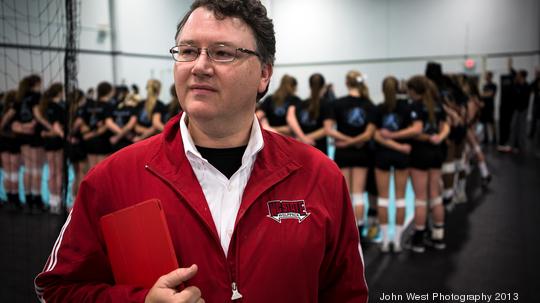Growing pains – it’s a common ache for founders scaling their companies out of the seed stage.
Scot Wingo, the serial entrepreneur behind car care startup Get Spiffy in Research Triangle Park, describes the seed stage team as a small, close knit team. It requires jacks of all trades. Then the company starts to scale and the needs change.
While some team members make it through the transition, “a lot of people don’t,” Wingo said. And as a founder, that has to be okay, and hard conversations have to happen.
Wingo said that for most of those employees, the landing will be soft, as they’ll parachute into a “company that needs those crazy, energetic monster of the muppets people.”
“They will find a place, it just isn’t the $10 million company,” he said.
Wingo was part of a panel discussion during Thursday’s Grepapalooza event in Durham. He was joined by Ricci Wolman, CEO of Written Word Media, a marketing platform for authors and publishers; Melissa Phillippi, CEO of WorkDove, a human resources technology platform formerly called Performance Culture; and Chris Geiss, CEO of Seguno, a marketing platform for Shopify merchants; said the transitioning can be tough.

Phillippi experienced the growing pains first hand. Her firm recently moved from Wilmington to Durham, a step that she said was “painful but … necessary.”
The firm, which will end the month at 17 employees, turned over a big part of its staff with the move. But being in the Triangle allowed WorkDove to “level up” its talent.
It also prompted a culture shift.
“It’s a different hustle culture,” she said – both of Durham and of the growth phase the firm is currently in. “Our culture has shifted at this stage to be more of a driver culture.”
Product market fit
A big challenge for startups? Figuring out product market fit – critical for scaling a company out of the seed stage. It requires flexibility, founders said.
“As a founder, you really have to examine what your assumptions are,” Wolman told the crowd. While founders may be “in love with an idea,” it doesn’t mean a lot without customers.
Wolman said that while “it’s really important to listen to the customer,” sometimes the customer doesn’t know exactly how to translate what she wants either.
“It’s a combination of doing a lot of legwork … and also taking your personal bias out of that calculation,” she said.
“You’re pulling this thread – you don’t know what’s on the other side,” Wingo said. “You have to be kind of open minded and listen to the customer and try to solve their pain.”
“Product market fit is a moving target,” Geiss added. “It’s not a destination.”
Wingo said the initial idea is way off “almost 99 percent of the time.”
In the case of Geiss, the firm started by exploring how to personalize discounts for people. It evolved into a much more enterprise product. Its focus was the differentiator, he said. By focusing only on Shopify (NYSE: SHOP) customers, it knows exactly who it’s targeting and can go all in, he said.
It’s an approach Wingo said has advantages. His previous company, e-commerce platform ChannelAdvisor (NYSE: ECOM) in Morrisville, started “as just an add-on for eBay,” he said.